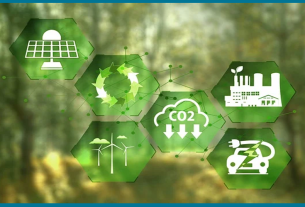📍 Rome, July 9, 2025 — Spanish renewable energy firm Solarig, through its biomethane division Biorig, has announced a strategic investment exceeding €300 million to develop more than 20 biomethane plants across Italy by 2030. The initiative aims to produce between 1 and 1.25 TWh of renewable gas annually, equivalent to the energy needs of 360,000 to 450,000 households, supporting Italy’s decarbonization goals and circular economy model.
🔋 Strategic Expansion and Local Impact The investment marks a significant diversification of Solarig’s Italian portfolio, building on its 15-year track record and over 1 GW of completed solar projects. Biorig’s facilities will convert organic agricultural and livestock waste into biomethane, reinforcing Italy’s commitment to sustainable energy and waste management.
🗣️ Leadership Commentary
- Manuel Alonso, Managing Director of Biorig:
“Italy represents a strategic opportunity due to its clear regulatory framework and commitment to biomethane. We’re excited to contribute with a proven model adapted to the local context.” - Agnese Rocco, Country Manager of Solarig Italy:
“Biomethane is essential for decarbonizing non-electrifiable sectors. This investment aligns with our 2025–2028 Strategic Plan focused on technological diversification.”
🤝 Development Strategy Biorig will pursue a dual approach:
- In-house development of new facilities
- Partnerships with local developers and operators aligned with national environmental goals
🌍 European Leadership Ambitions Biorig is already developing 20+ projects in Spain with a combined output of 3 TWh/year. The Italian expansion strengthens its position as a leading biomethane producer in Europe.
🏭 About Solarig Headquartered in Madrid, Solarig operates 10 GW of photovoltaic plants and manages a 20 GW global portfolio across 12 countries. Its 1,400-strong team supports global decarbonization through renewable energy, green gases, and sustainable fuels.
For more details, visit Solarig’s official announcement.
Source: esgnews.com

